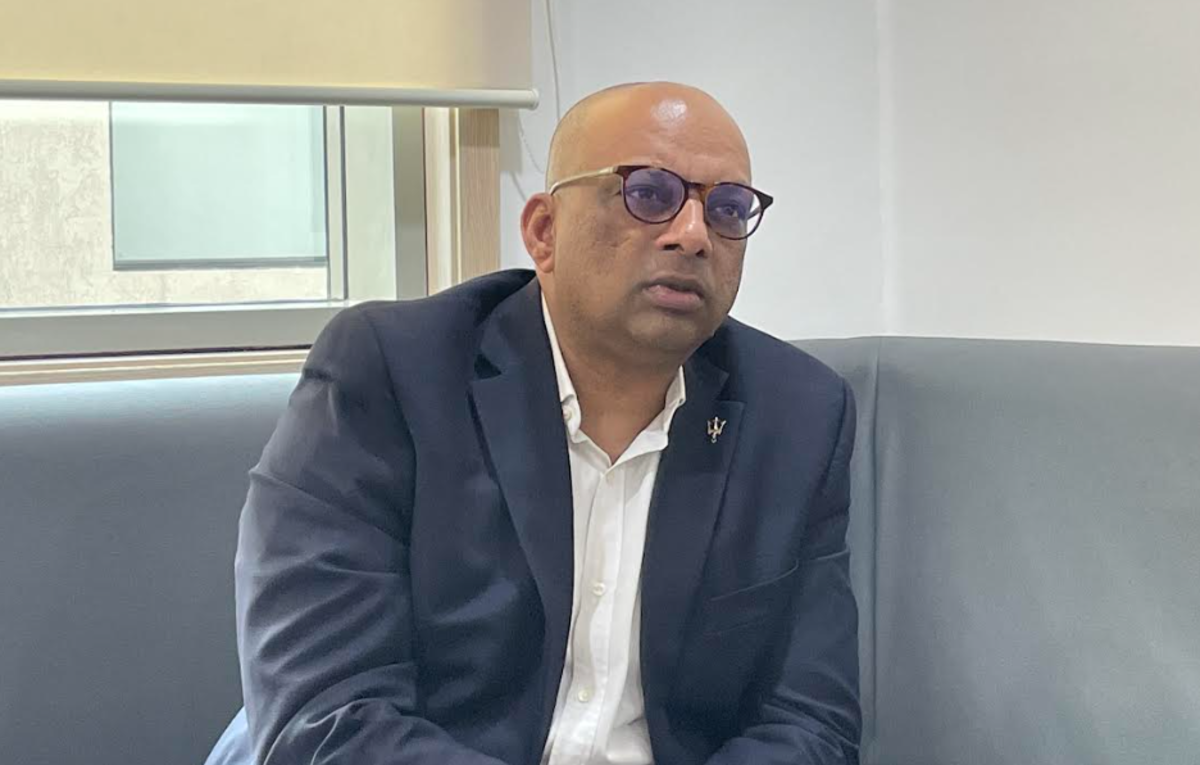Mumbai: Dinesh Madhavan, President Group Oncology & International, Apollo Hospitals Enterprise Limited, interacting with ETHealthworld’s Prabhat Prakash, emphasises the need for international collaborations in advancing oncology research and treatment in India. He also discusses the significant potential of the nation to expand its capabilities in conducting clinical trials by streamlining processes and fostering collaborations between research institutions, private enterprises, and government bodies. Edited Excerpts
What is the current global landscape of oncology research and treatment and what are some of the recent breakthroughs or advancements in oncology that have caught your attention?
The current landscape of global oncology research reflects an alarming rise in cancer cases, reaching approximately 21 million new diagnoses annually, with a distressing 50 per cent mortality rate. Notably, recent breakthroughs have revolutionised cancer treatment paradigms. Key advancements centre on immune checkpoint inhibitors, heralding a transformative era in oncology through immunotherapy. This novel approach leverages the body’s immune system to combat cancer cells. Moreover, developments in CAR T-cell therapy and nano therapy exhibit promising potential, offering tailored treatments and potentially reshaping the landscape of cancer care. These innovative strides signify a shift towards precision medicine, emphasising individualised therapies and marking a crucial milestone in the quest for effective cancer treatments worldwide. CAR T-cell therapies in India, currently approved for B cell lymphomas, are set for rapid expansion within 12–16 months. Ongoing clinical trials in cities like Bangalore, Chennai, Kolkata, Mumbai, and Delhi project a broader landscape. With India’s vast population, a collaborative approach integrating private healthcare, government, and charities will likely introduce diverse CAR-T therapy options. Anticipated CDSCO approvals will extend these therapies beyond B-cell lymphomas, offering comprehensive treatments for diverse blood cancers nationwide.How can international collaborations advance oncology research and treatment in India? Please share some recent developments in the field of Indian oncology.
International collaborations serve as a catalyst for advancing oncology research and treatment in India by fostering knowledge exchange and technological advancements. Collaborations like the Zap X-based brain tumour treatment installation with Dr John Adler from Stanford demonstrate how foreign partnerships bring cutting-edge therapies to India. Apollo’s alliances, like the Oncology Alliance and Apollo Practicum, display the value of global participation, enabling Indian practitioners to interact with international experts and implement advanced treatments such as proton beam therapy, bone marrow transplants, and precision oncology. Recent collaborations with Marseille, France, focusing on radiosurgery for neurological conditions, and engagements with institutions like Saint Judes for paediatric procedures showcase Apollo’s ongoing commitment to shared learning. These partnerships offer exposure to diverse medical experiences, technological innovations, and clinical trials, effectively closing the gap and enhancing India’s expertise in combating cancer.How is cancer research and treatment evolving in India, and how does it compare to the rest of the world?
Cancer research and treatment in India are gradually evolving, yet the country faces critical challenges compared to its global counterparts. India lacks comprehensive cancer reporting due to cancer not being a notifiable disease, resulting in under-reporting and a lack of precise data on the true cancer burden. This obstructs strategic planning and resource allocation. Moreover, the medical profession in India tends to value clinical practice over research, leading to a shortage of researchers and scientists in the oncology field. While India has made strides in cancer research, it significantly lags behind countries like China and Western nations in terms of research projects, clinical trials, and innovation. Collaborations and international partnerships play a vital role in bridging this gap, as witnessed in India’s recent efforts to expand treatment options through alliances with foreign institutions and practitioners. However, to truly compete on a global scale, India needs enhanced cancer reporting mechanisms, increased focus on research, and greater accessibility to advanced treatments beyond urban centres.
What are the major challenges India faces in oncology research regarding cancer prevention, diagnosis, and treatment?
India grapples with substantial challenges in oncology research across cancer prevention, diagnosis, and treatment. The foremost hurdle lies in widespread underinsurance, where most individuals possess insufficient coverage for tertiary conditions. Additionally, the absence of a comprehensive national policy for preventable cancers like HPV vaccination hampers progress. The lack of a collaborative approach between government and private entities, limited clinical trial emphasis, and inadequate research-focused decisions further impede advancements in oncology, hindering optimal cancer prevention, early diagnosis, and effective treatments in the country. The push for ‘Make in India’ fosters local production but must align with augmenting medical oncology and surgical oncology seats, diversifying programmes, and establishing accessible neighbourhood cancer centres. Without cancer being a notifiable disease, addressing these challenges remains arduous.
What are some specific areas of oncology where India has untapped potential and how can it be leveraged?
India possesses untapped potential in several areas of oncology. Firstly, the country can significantly expand its capabilities in conducting clinical trials by streamlining processes and fostering collaborations between research institutions, private enterprises, and government bodies. Secondly, establishing a nationwide initiative focused on paediatric cancers can harness India’s potential in curative treatments for childhood cancers, leveraging its expertise in healthcare and research. Thirdly, emphasising the development of indigenous dietary and post-treatment care solutions through joint efforts between the private and public sectors could aid patients’ holistic recovery. Lastly, addressing adolescent cancers through the stringent implementation of laws against tobacco use in proximity to educational institutions could be a significant unexplored area, contributing to cancer prevention among vulnerable age groups. Leveraging these domains, India could position itself as a formidable force in comprehensive cancer care and research on a global scale.
How have government initiatives and policies helped advance oncology research and patient care in India? How can the government play a more significant role in enhancing cancer treatment and care?
The Government of India’s initiatives have significantly contributed to the progression of oncology research and patient care. Initiatives like encouraging technology imports and promoting domestic manufacturing via the ‘Make in India’ programme have eased access to medical equipment, lowering costs for consumers. Additionally, efforts to promote generics and bulk manufacturing have aimed to reduce treatment costs. However, more specific cancer insurance policies, innovative collaborations between public and private sectors, and committees focusing on newer technologies’ integration into cancer care are needed. Streamlining duties and taxes on medical imports can further improve accessibility. The government can enhance cancer care by fostering a robust committee for policy formulation, amplifying education on preventive measures, and supporting research-focused academic institutes. Continuous engagement, public awareness campaigns, and the creation of comprehensive policies will fortify cancer care and treatment accessibility in India.
What role will new technologies like genomics and artificial intelligence (AI) have in the way India treats cancer patients in the future?
New technologies like genomics and AI hold immense promise in revolutionising cancer treatment in India. Genomics, particularly next-generation sequencing, empowers precise diagnosis and personalised treatment plans tailored to individual genetic profiles. Meanwhile, AI augments healthcare by assisting clinicians in decision-making, enhancing patient engagement, and optimising treatment outcomes. AI-driven algorithms aid in patient reminders, drug dosages, surgical procedures, and follow-ups based on global data and experiences. Although India is yet to establish a comprehensive AI-driven oncology programme, ongoing discussions indicate an imminent shift towards leveraging AI more extensively in cancer care. From prevention to diagnosis and across the entire spectrum of cancer care, these technologies are poised to enhance accuracy, efficiency, and accessibility in treating cancer patients, marking a significant step forward in India’s oncology landscape.


